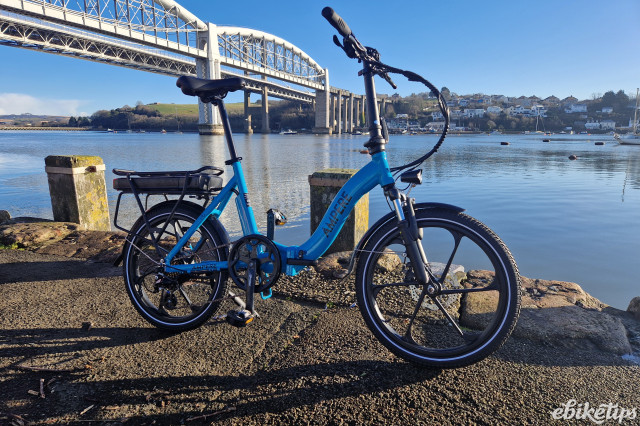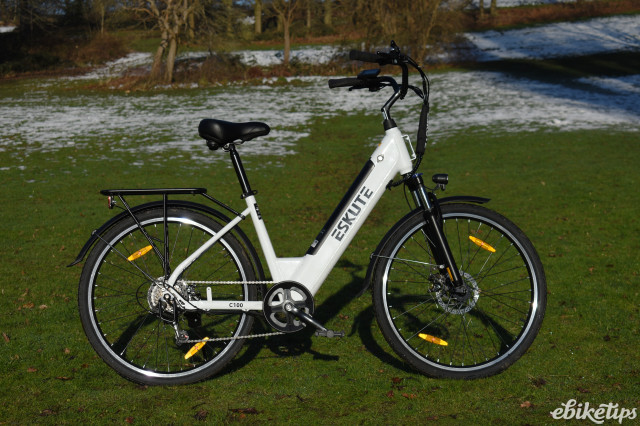Deloitte's latest report have pronounced the bicycle as the future of urban mobility, with electric bikes at the forefront of the wordwide transformation. They say that technological innovations will further help drive growth in the number of people using bicycles to get around cities around the world in the coming years, including improvements in e-bike batteries and great affordability.
Lithium-sulfur batteries could lead to a fivefold increase in your e-bike's battery life
The report titled Technology, Media, and Telecommunications Predictions 2020 contains a chapter, Cycling’s technological transformation: Making bicycling faster, easier, and safer, in which the firm sets out its view of how cycling in cities will develop.
The firm predicts that a 1 per centage point rise in the proportion of people committing by bike between 2019-22 “will double the number of regular bicycle users in many major cities around the world where cycling to work is still uncommon.”
According to the report, that growth will be underpinned by “an array of diverse technological innovations, including predictive analytics, product and application design, wireless connectivity, digital urban planning tools, 3D-printed parts, and electrification.
“These innovations—which, for the most part, are being developed separately by a disparate range of companies—are making cycling safer, faster, more convenient, and easier to track and measure.
“This, in turn, makes it a more attractive option for first-mile, last-mile, and overall travel, furthering its rising popularity.”
Deloitte says that in particular, “the development and spread of e-bikes … stands out for its potential to boost cycling’s growth,” and that “thanks largely to recent improvements in lithium-ion battery (LIB) technology, pricing, and power, the e-bike market is seeing a surge in interest, particularly for high-end models.”
Illustrating the potential of e-bikes, it says that in 2034 some 40 million are expected to be sold worldwide, compared to 12 million electric cars and trucks, with the market driven by LIB technology.
Integrated lights that are thief proof, smartphone apps that can lock e-bikes and the fact the batteries are easier to charge than those of electric vehicles, plus pedal assistance also opening up cargo bikes to potential customers who may not have considered them in the past, are also seen as attractive features, and Deloitte notes that car manufacturers such as GM and Volkswagen are moving into a market where Uber is also present with its Jump e-bike hire scheme.
The report also says that cameras can have a role to play in improving safety because they may “deter or dampen” antisocial behaviour, something Deloitte believes discourages women in particular from cycling in countries such as the UK and US, contrasting those with places like the Netherlands and Denmark where the gender balance is roughly equal.
It also notes that while “cars are likely to remain prevalent for decades to come, a growing number of cities are beginning to reallocate available space to accommodate other forms of transport, including bicycles” – something proposed by Birmingham just this month.
“Giving bikes more space is very likely a critical step toward making cities more hospitable to bicycle use: Many people who might otherwise embrace cycling are frightened off by the prospect of sharing a crowded road with big metal vehicles with only a helmet for protection,” the report says.
“The good news is that there is plenty of space to reallocate. The United States has more than a billion parking spaces, for instance, and more than half of all of the country’s downtown space is given over to roads or parking.”
In conclusion, Deloitte says: “The technology industry has a large role to play in encouraging greater bicycle use—a goal that can help society address many challenges arising from continuing global urbanisation. Improving the technology itself—better data analytics to support urban planning, or faster battery recharge times, or apps that help people integrate bicycling into their commutes—is only part of the picture. The other, equally important part is to support policies and programs that promote bicycling.
“The tech industry can’t do it alone, however. Many vertical sectors should be involved for cycling to make a dent in certain entrenched challenges,” it adds, citing the example of healthcare where it highlights UK initiatives under which doctors have referred patients to cycle training schemes.
It says that employers also have a role to play by encouraging more commuting by bike, for example by providing bike parking and other facilities for workers who cycle.
“In terms of usage, bicycling still makes up only a small fraction of urban transportation modes. In terms of impact, however, bicycling can be immensely important—and the more people who bicycle, the greater the likely societal benefits,” says Deloitte.
“As technologies continue to improve, bicycling will most likely continue to become easier, faster, and safer. That’s good news for cities worldwide as they search for more economical and more sustainable ways to move people and things around,” it adds.






